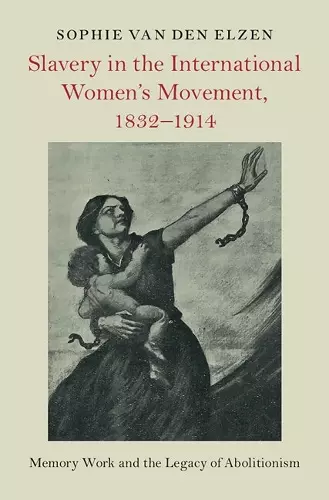Slavery in the International Women's Movement, 1832–1914
Memory Work and the Legacy of Abolitionism
Format:Hardback
Publisher:Cambridge University Press
Publishing:30th Jun '25
£90.00
This title is due to be published on 30th June, and will be despatched as soon as possible.

An exploration of how the international women's movement made the history of antislavery part of its usable past.
This book shows how advocates for women's rights, in the absence of their “own” history, used the antislavery movement as a historical reference point and model. It will be of interest to cultural and literary historians of nineteenth-century abolition, the abolitionist movement, women's history, and transatlantic reform culture. This title is also available as open access on Cambridge Core.In this book, Sophie van den Elzen shows how advocates for women's rights, in the absence of their 'own' history, used the antislavery movement as a historical reference point and model. Through a detailed analysis of a wide range of sources produced over the span of almost a century, including novels, journals, speeches, pamphlets, and posters, van den Elzen reveals how the women's movement gradually diverged from a position of solidarity with the enslaved into one of opposition, based on hierarchical assumptions about class and race. This inclusive cultural survey provides a new understanding of the ways in which the cultural memory of Anglo-American antislavery was imported and adapted across Europe and the Atlantic world, and it breaks new ground in studying the “woman-slave analogy” from a longitudinal and transnational comparative perspective. This title is also available as open access on Cambridge Core.
'Sophie van den Elzen has given us a fascinating study of how abolitionism provided a model for early feminism. Drawing creatively on a wide range of sources in several languages, she shows how women activists in nineteenth-century Europe looked to the enslaved, but above all to abolitionists in staking out their own claims to liberation. Theoretically refined and grounded in detail, this is a tour de force. Highly recommended for everyone interested in the history of feminism or the role of cultural memory in emancipation movements.' Ann Rigney, Utrecht University
ISBN: 9781009411967
Dimensions: unknown
Weight: unknown
331 pages